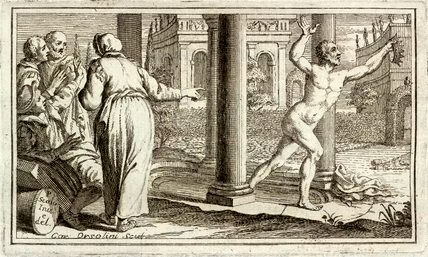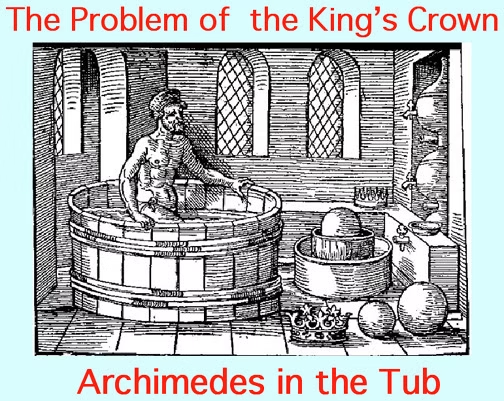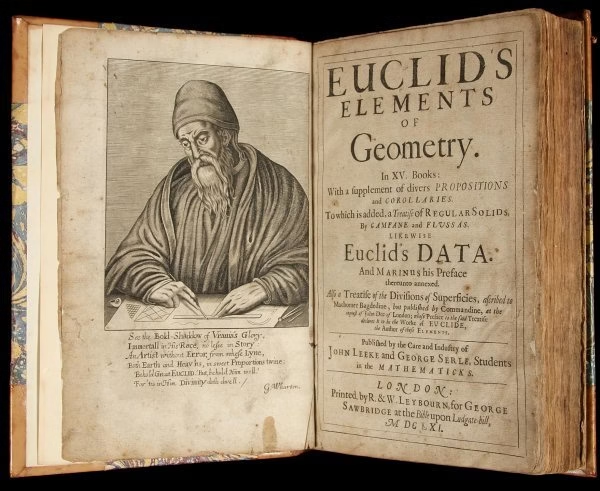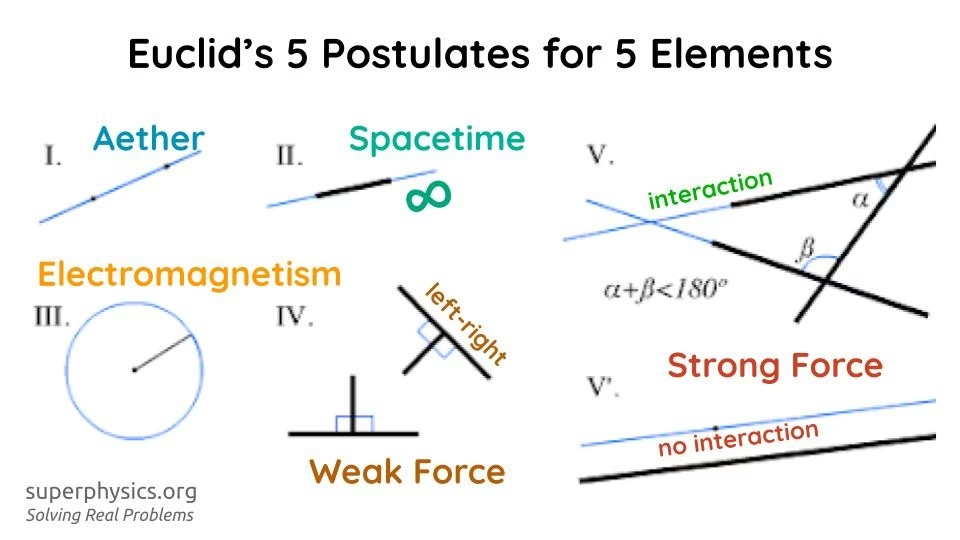How Rationality Led to Modern Science and Maths
Delve into the minds of Archimedes, Euclid, and Lucretius, pioneering figures who laid the groundwork for modern science and philosophy. Explore their groundbreaking contributions and lasting impact on mathematics, physics, and ancient Rationality. This article explores the lives and ideas of these thinkers, highlighting their revolutionary concepts and demonstrating their enduring relevance. Furthermore, discover how these ancient minds challenged conventional wisdom and paved the way for scientific inquiry, and rationality, impacting our understanding of the universe and our place within it. Could these ancient minds have imagined the world we live in today, shaped so profoundly by their ideas?
Table of Contents
- Archimedes: The Eureka Moment, Starting of Rationality
- Euclid: The Father of Geometry from Rationality
- Lucretius: Rationality Leading to the Poet of Reason
- Archimedes: Engineering Marvels and Practical Applications from Rationality
- Euclid and Optics: Reshaping Human Vision from Rationality
- Archimedes: Measuring the Universe
- Democritus, Epicurus, and the Atomic View of Reality
- Lucretius: On the Nature of Things
- The Enduring Legacy of Rationality
- Conclusion
Archimedes: The Eureka Moment, Starting of Rationality
Archimedes, a name synonymous with ingenuity, left an indelible mark on mathematics and physics. His legendary “Eureka!” moment,

sparked by a problem King Hiero II posed, led to the discovery of Archimedes’ principle. This principle states that the buoyant force on an object immersed in a fluid is equal to the weight of the fluid displaced by the object. If Archimedes were alive today, what modern problem would he solve with his ingenuity?
The Crown and the Tub
King Hiero suspected that a goldsmith had replaced some of the gold in a crown with silver. King Hiero tasked Archimedes with determining whether the crown was pure gold without damaging it. While pondering this problem in a bath, Archimedes realized that the volume of water displaced by an object is equal to the object’s volume. By comparing the volume of water displaced by the crown to that displaced by an equal weight of pure gold, he could determine if the crown was fraudulent.

Density and Displacement
Archimedes understood that gold is denser than silver. Therefore, a crown made of a mixture of gold and silver would have a larger volume than a crown made of pure gold of the same weight. This difference in volume would cause the mixed crown to displace more water than the pure gold crown.
Euclid: The Father of Geometry from Rationality
Euclid’s “Elements” is one of the most influential works in the history of mathematics. This collection of 13 books systematically presents Euclidean geometry, providing a rigorous foundation for the field. Euclid’s work has shaped mathematical thought for centuries and continues to be studied today.

Axiomatic System
Euclid’s approach was to start with a set of self-evident truths, called axioms or postulates. Then deduce other propositions, called theorems, from these axioms using logical rules. This axiomatic method became the standard for mathematical reasoning.
The Five Postulates
Euclid’s geometry is based on five postulates, which are statements assumed to be true without proof. The most famous of these is the parallel postulate, which states that through a point not on a given line, there is exactly one line parallel to the given line. This postulate has been the subject of much debate and investigation, leading to the development of non-Euclidean geometries.

Lucretius: Rationality Leading to the Poet of Reason
Titus Lucretius Carus, often known simply as Lucretius, was a Roman poet and philosopher. His only known work is the philosophical poem “De Rerum Natura” (On the Nature of Things), a didactic poem that explains Epicurean philosophy to a Roman audience. Lucretius championed reason and questioned supernatural explanations.
Epicurean Philosophy
Lucretius’ poem expounds the philosophy of Epicurus. This philosophy emphasizes the importance of pleasure and the avoidance of pain as the ultimate goals of life. However, Epicurean pleasure is not simply physical gratification but rather a state of tranquillity and freedom from disturbance.
Atomism and Materialism
Central to Lucretius’ philosophy is the idea that the universe is made up of atoms and void. Atoms are indivisible particles that combine in various ways to form all the objects we see around us. There is nothing beyond atoms and void; even the soul is made of atoms and perishes with the body. This materialistic view of the universe rejects the idea of divine intervention and supernatural forces.
Archimedes: Engineering Marvels and Practical Applications from Rationality
Beyond his theoretical contributions, Archimedes was also a brilliant engineer and inventor. He applied his scientific knowledge to solve practical problems, creating devices that were both ingenious and effective.
The Archimedes Screw
One of Archimedes’ most famous inventions is the Archimedes screw. This is a device used to raise water from a lower level to a higher one. This invention has been used for irrigation and drainage for centuries and is still used in some parts of the world today.
Levers and Warfare
Archimedes also understood the principles of levers. He used them to design powerful machines for warfare. According to legend, he once said, “Give me a lever long enough and a fulcrum on which to place it, and I shall move the world.” He designed catapults and other siege engines that were used to defend Syracuse against the Romans.
Euclid and Optics: Reshaping Human Vision from Rationality
Euclid’s work extended beyond geometry to the study of optics. His book “Optics” explored the geometry of vision, laying the foundation for the scientific study of light and sight.
Visual Rays
Euclid proposed that vision is based on visual rays that emanate from the eye and travel to the object being viewed. He argued that the appearance of objects is determined by the way these rays strike them. Although this theory is not entirely correct according to modern physics, it was an important step in understanding the geometry of vision.
Influence on Later Scientists
Euclid’s work on optics influenced later scientists such as Ptolemy and Isaac Newton, who further developed the field of optics. His geometric approach to vision paved the way for the development of lenses and other optical instruments.
Archimedes: Measuring the Universe
Archimedes was not only interested in practical problems but also in theoretical questions about the nature of the universe. In his book “The Sand Reckoner,” he attempted to estimate the size of the universe and the number of grains of sand that would be needed to fill it.
Challenging Conventional Wisdom
Archimedes challenged the conventional wisdom of his time, which held that the universe was relatively small. He used a heliocentric model of the solar system, proposed by Aristarchus of Samos, to estimate the size of the universe. Although his estimate was not accurate by modern standards, it demonstrated his ability to think on a grand scale.
Inventing Large Numbers
In order to estimate the number of grains of sand needed to fill the universe, Archimedes had to invent a system for representing very large numbers. He created a system that could represent numbers much larger than those commonly used at the time, demonstrating his mathematical ingenuity.
Democritus, Epicurus, and the Atomic View of Reality
Democritus’s atomic theory, developed in the 5th century BC, posited that all matter consists of indivisible particles called atoms, separated by empty space. This radical idea challenged the prevailing view of a continuous, indivisible substance.
Epicurean Expansion
Epicurus, a later Greek philosopher, embraced and expanded upon Democritus’s atomic theory. He established a school in Athens, promoting the idea that atoms and voids are the fundamental constituents of reality. Epicurus argued that all phenomena, including the soul and the gods, could be explained in terms of atomic interactions.
Rejection of Divine Intervention
The atomic theory of Democritus and Epicurus rejected the notion of divine intervention in the natural world. They believed that the universe operates according to natural laws, without the need for supernatural explanations. This emphasis on naturalism was a significant departure from traditional religious beliefs.
Lucretius: On the Nature of Things
Lucretius, a Roman poet and philosopher, further popularized the atomic theory in his epic poem “De Rerum Natura” (On the Nature of Things). This poem aimed to explain the workings of the universe according to Epicurean principles, advocating for reason and challenging superstition.
Mortality of the Soul
Lucretius also argued that the soul is mortal, composed of atoms that disperse upon death. This view challenged the belief in an afterlife and emphasized the importance of living a fulfilling life in the present. His bold claims about the natural world earned him both admiration and criticism in his time.
The Enduring Legacy of Rationality
The ideas of Archimedes, Euclid, and Lucretius have had a profound and lasting impact on Western thought. Their emphasis on reason, logic, and empirical observation laid the foundation for the scientific revolution and the development of modern science.
Influence on Science and Mathematics
Archimedes’ principles of buoyancy and levers are still used in engineering and physics today. Euclid’s geometry remains a cornerstone of mathematics education. Lucretius’ atomic theory foreshadowed the development of modern atomic theory and his emphasis on naturalism influenced the development of scientific thought.
A Foundation for Modernity
These ancient thinkers challenged conventional wisdom and paved the way for scientific inquiry. Their contributions continue to inspire scientists, mathematicians, and philosophers today. They remind us of the power of human reason and the importance of questioning the world around us.
Conclusion
Archimedes, Euclid, and Lucretius were intellectual giants whose ideas continue to resonate today. They championed reason, logic, and empirical observation, laying the foundation for modern science and philosophy. By exploring their lives and ideas, we can gain a deeper appreciation for the power of human thought and the importance of questioning the world around us. Embrace the spirit of inquiry and continue to explore the wonders of the universe. Dive deeper into the world of ancient Rationality and discover the endless possibilities it offers.
Read how AI solved the Protein Folding Problem.
Read more about Ancient Scientific Progress and how Religion was against it.


[…] Find out more about How Rationality Led to Modern Science and Mathematics. […]